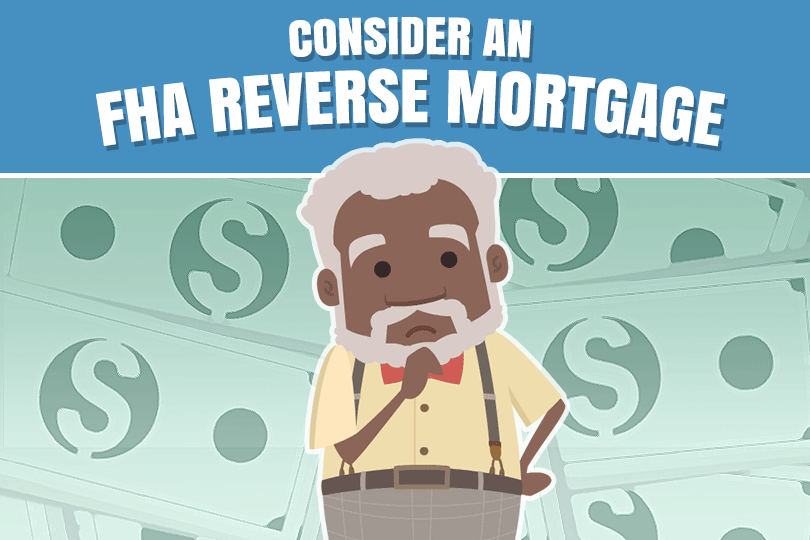FHA HECM Loans vs. Conventional Reverse Mortgages

Reverse mortgages can be an option for the right borrower, but choosing between an FHA-insured Home Equity Conversion Mortgage (HECM) and a conventional reverse mortgage can be confusing. Below, we cover some of the important things you need to know.
What Are Reverse Mortgages?
Reverse mortgages are loans designed for senior homeowners who own their homes outright or are close to doing so.
With traditional mortgages, you make monthly payments to a lender. FHA and conventional reverse mortgages allow you to borrow money secured by the equity in your house and receive funds in various forms (lump sum, monthly payments, line of credit).
Reverse mortgages typically don't require repayment during the borrower's lifetime until you sell the home or stop using it as your home address.
FHA Reverse Mortgages (HECMs)
HECMs, insured by the Federal Housing Administration (FHA) offer some important features:
- Standardized Guidelines
FHA HECMs / reverse mortgages adhere to strict FHA guidelines, offering consistency and transparency in terms and conditions. - Consumer Protections
HECMs come with several consumer safeguards, including mandatory counseling to help you understand the loan's implications. - Disbursement Options
You can choose from different payment options, including lump sum, monthly payments, line of credit, or a combination of these.
- Upfront Costs
HECMs typically have higher upfront costs than some conventional reverse mortgages, including mortgage insurance premiums (MIPs) and origination fees. - Limited Property Types
HECMs are primarily available for single-family homes and certain condominiums. - Stricter Eligibility Requirements
You must meet specific age, equity, and financial requirements to qualify for an FHA HECM.
Conventional reverse mortgages, offered by private lenders, provide an alternative for borrowers who may not qualify for a HECM or prefer different loan terms. These mortgages offer:
- Flexibility
Conventional reverse mortgages may feature more flexible terms and eligibility requirements than FHA HECMs. - Potentially Lower Costs
Conventional reverse mortgages may have lower upfront costs than HECMs, depending on the lender and your circumstances. - Higher Loan Limits
Conventional reverse mortgages may offer higher loan limits, especially for high-value homes.
- No Government Insurance
These loans lack the security of FHA insurance, meaning lenders may be less willing to offer them, and you might face higher interest rates. - Less Consumer Protection
Conventional reverse mortgages may have fewer consumer protections than HECMs. - Varied Terms and Conditions
Loan terms and features can vary significantly between lenders, making comparison shopping essential.
The best reverse mortgage for you depends on circumstances, financial goals, and other variables. Consider the following factors when making your decision:
- Eligibility
Do you meet the eligibility requirements for an FHA HECM or a conventional reverse mortgage? - Cost
Compare the upfront costs and interest rates of different loan options. - Flexibility
Do you need a specific disbursement option or loan term? - Risk Tolerance
Are you comfortable with the lack of government insurance in a conventional reverse mortgage? - Lender Reputation
Shop around for a reputable lender with experience in reverse mortgages.

Do you know what's on your credit report?
Learn what your score means.








